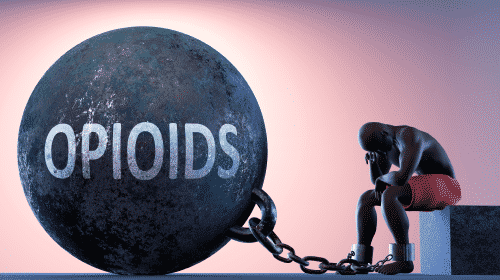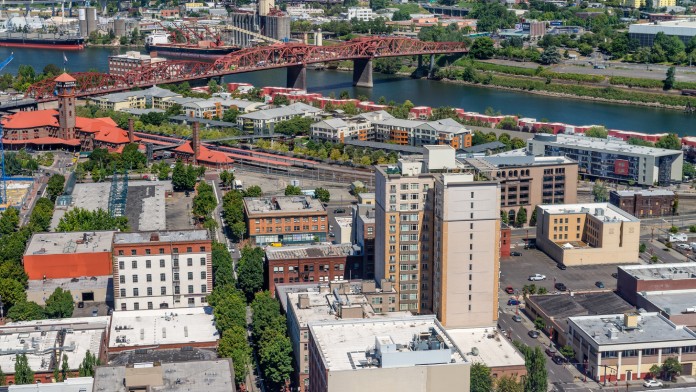Expert Insights
As a resident of Portland, I’ve seen the expansion of recovery services here over the years. There is an expanding peer support network, crisis support services, recovery community organizations, and even a recovery gym. But what we don’t have is enough coordinated care and care for people in extreme poverty. Funding from measure 110 has helped, but I believe until we tackle homelessness too we’ll keep failing to tackle rising drug-related deaths and other social problems. The governor plans to put houseless people in a huge encampment, but it will cost more to run (at $4,000 per tent excluding camp operational costs) than housing someone in a private apartment. I believe the city is making a huge mistake and should instead be funding affordable housing. As a social worker, I think until people have safety and their own space, all they can do is survive and using drugs is part of survival for some.
~ Olivia Pennelle
How Expensive is Drug Rehab in Portland?
Costs will vary based on the type of program you choose. For example, residential inpatient programs are often more expensive than outpatient since you live at the facility full-time. If cost is a barrier for you, there are other ways to finance drug rehab in Portland.
State-funded programs are paid for entirely by the government. They are typically run out of the local public health office and provide free or low-cost options for people without insurance or a steady income. A state-funded program offers many of the same options as a private facility.
Does Insurance Cover Rehab Center Costs?
If you are part of a group plan through your employer and your company has more than 50 employees, your insurance is required to cover care through the Mental Health Parity and Addiction Equity Act.
Additionally, the Affordable Care Act considers addiction treatment to be an “essential health benefit” that must be covered by new plans that participate in the Health Insurance Marketplace. One thing to keep in mind, however, is not all drug rehab centers in Portland accept every insurance policy.
Private Insurance
Private insurance can be used toward the costs of addiction treatment. How much it will cover depends on your individual plan and the program you choose.
Popular private insurance providers include Anthem, Blue Cross Blue Shield, UnitedHealthcare, and Humana.
Medicaid
Medicaid is federally covered insurance for people with low incomes. In Oregon, the Medicaid program is called the Oregon Health Plan (OHP). You can apply at any time. OHP covers substance use care, including residential and outpatient, counseling, acupuncture, methadone treatment, and detox at a drug or alcohol rehab in Portland.
Medicare
Medicare is federally provided health insurance for adults 65 and older or under the age of 65 with a disability. It covers care for SUDs under the following circumstances:
- Your healthcare provider states the services are medically necessary.
- You receive services at an in-network and Medicare-approved facility.
- Your provider sets up a care plan.
Does Your Insurance Plan Cover Addiction Treatment?
Not all treatment centers in Portland accept certain private insurance providers, Medicaid or Medicare. You can call the number on the back of your insurance card during the days and hours listed to speak to your provider directly about the types of care your plan covers.
How Do You Pay for Addiction Treatment in Portland?
Low-cost and free programs may not have any openings. Perhaps you don’t qualify for a state-funded facility or don’t have insurance. This should not be considered a barrier to getting the help you need for your substance use disorder.
Choose a Program that Offers Payment Plans: Many accredited facilities and detox centers in Portland offer financing options that include payment plans. This allows you to pay a certain amount each month toward your care.
Apply for a Scholarship: Scholarships can sometimes be available from non-profit organizations, foundations, or individual facilities. They can also be combined with private insurance or Medicare and Medicaid to help finance the cost of your treatment.
Find a Sliding-Scale Program: A sliding-scale payment program is one of the more commonly offered financing options. This allows you to pay what you can afford during your time, and the amount can change from month to month, depending on your income.
How Does Portland Compare in Alcohol and Drug Use?
Portland, Oregon’s largest city, sits on the Columbia and Willamette rivers. It’s known for its parks, bridges, bicycle paths, and eco-friendliness, but it’s also home to the highest rate of methamphetamine and prescription opioid misuse in the nation.1 But there are over 90 alcohol and drug rehab centers in Portland ready to help.2 No matter what type of substance use disorder you are trying to treat, there is a program tailored to your specific needs. Some take a more holistic approach, focusing on the outdoor lifestyle Portland is known for, while others are designed with families and young adults in mind.
Released in late 2021, statistics from the National Survey on Drug Use and Health show Oregon’s teens and adults are struggling with substance use disorder (SUD). Oregon has the second-worst overall addiction rate in the country, with more than 18% of teens and adults reporting a problem with drugs or alcohol.1

Ranks #1 state in the country for methamphetamine and prescription opioid addiction

Ranks #5 state in the country for alcoholism, also known as alcohol use disorder (AUD)

Alcohol is the most abused substance in the state, with over 12% of teens and adults suffering from AUD.

Ranks #50 in the nation for addiction treatment access, with 18% of residents unable to enter rehab.
Portland is the county seat of Multnomah County. In 2019, county officials stated that the rate of alcohol-related deaths was nearly twice as high as the national average, making it a bigger threat than opioids or methamphetamines.2 However, when it comes to drug-related deaths, meth is the biggest issue in Portland.3
Alcohol and Drug Laws in Oregon
Drug Decriminalization and Addiction Treatment Initiative: In 2021, Oregon became the first state to no longer make it a crime to possess small amounts of illegal drugs such as cocaine, heroin, methamphetamine, and oxycodone. Instead, the person is subject to a $100 fine. They can either pay the fine or have it waived by attending a health screening. Those caught with larger amounts of illegal drugs are still subject to arrest. The measure also expands funding and access to addiction services.
Good Samaritan Law: Under the Good Samaritan Law, if someone is overdosing and you reach out for medical help, neither of you can be arrested or prosecuted for:
- Drug possession
- Being in the vicinity of drug use
- Violating probation or parole due to drug use or possession
- Outstanding warrants from drug use or possession
This law does not protect you from other crimes that may have been committed, such as weapons possession or outstanding federal warrants or warrants from another state.
Naloxone Access Law: In Oregon, anyone can get naloxone, or Narcan, from a pharmacist without a prescription. State law allows people to carry and use naloxone on anyone who may be experiencing an opioid overdose.
Choosing the Right Level of Care
There is no “one-size-fits-all” approach when it comes to substance abuse. Addiction treatment settings at alcohol or drug rehab centers in Portland can vary in intensity and approach depending on your type of SUD and the kind of care you are seeking.
Medical Detox
Detox is often the first step in the addiction recovery process. Medically supervised detox help maintain comfort while all traces of the substance leave the body. During medical detox, specific medications are given to help manage the uncomfortable or dangerous side effects of withdrawal symptoms.
Inpatient
Residential or inpatient rehab is typically for people who have completed medical detox and would benefit from highly structured care. You live at the facility, which includes 24-hour supervision or care. The length of stay can run as little as 30 days or for many months. Days typically include group activities, therapy, and medical care.
Partial Hospitalization Programs (PHPs)
A PHP is when the patient stays at the hospital for no more than 20 hours a week, often during the day. There are no overnight stays. A PHP includes a mix of outpatient individual and group counseling in a hospital setting.
Intensive Outpatient Programs (IOPs)
IOPs require the patient to spend more time in the program than in standard outpatient; often, this means nine or more hours a week. You’ll receive an individual plan based on your particular needs.
Standard Outpatient
Standard outpatient often includes attending counseling for a couple of hours per week, split up over one or two sessions. It can include group, individual, and family sessions. Outpatient allows you to keep working, going to school, or taking care of your family while in treatment.
Aftercare
Once you’ve completed a program, it’s important to create an aftercare plan for post-rehab success. This plan will include activities, meetings, and other resources to help you manage your day-to-day life and any triggers or cravings you may face when treatment is over. Each person’s aftercare plan will be based on their own needs.
Finding Specialized Drug Rehabs in Portland
There are Portland drug rehabs that offer programs tailored to the unique needs of a specific population:
Veteran
Programs designed for veterans will take a targeted approach to address their needs, particularly when it comes to co-occurring mental health disorders. They can also go through treatment surrounded by people who understand their experiences.
LGBTQ+
Those who identify as LGBTQ+ are almost twice as likely to be diagnosed with a substance use disorder than those outside the community.8 An LGBTQ+ rehab provides a safe, compassionate, and understanding place where people can seek treatment.
Men-Only
A male-only facility gives patients a chance to connect with other men who have been through a similar experience without any distractions. This can help build a sense of camaraderie, help men feel less isolated, and make it easier to open up about feelings and concerns.
Women-Only
A women-only rehab provides a safe environment where a woman can begin healing from any past trauma and comfortably address the root of their addiction while being supported by other women. This includes gender-specific therapies and treatments that understand the stressors women commonly face.
Teen
Teen programs remove them from the pressures of daily life, including many of the triggers that may have led to their addiction. It also provides a structured, healthy environment where teens can learn how to develop better coping mechanisms.
Should You Travel for Drug and Alcohol Rehab in Portland?
Traveling for rehabilitation can remove you from harmful influences or distractions that could derail your recovery efforts. As one of the largest metropolitan areas in Oregon, Portland can offer you a fresh start and addiction treatment centers that fit your needs.
Resources
- International, S. C. for B. H. S. and Q. and R. (n.d.). OREGON – National survey on drug use and health.
- FindTreatment.gov. (n.d.). FindTreatment.gov.
- Mental Health & Addiction Association of Oregon. (2021). Oregon Data extracted from the National Survey on Drug Use and Health.
- Multnomah County. (2019, March 4). More residents die from alcohol than opioids, suggesting policy should refocus.
- Mental Health & Addiction Association of Oregon. (2019, February 15). Meth: The Leading Cause of Drug-Related Deaths in Oregon.
- Multnomah County (n.d.). Addiction Provider Resource.
- gov. (n.d.). Substance Use Disorders.
- Tami, M.L., Treiman, K., Padwa, H., Henretty, K., Tzeng, J., Gilbert, M. (2021, October 13). Addiction Treatment and Telehealth: Review of Efficacy and Provider Insights During the COVID-19 Pandemic. Psychiatry Online.
- Teeters, J. B., Lancaster, C. L., Brown, D. G., & Back, S. E. (2017). Substance use disorders in military veterans: prevalence and treatment challenges. Substance Abuse and Rehabilitation, 8, 69–77.
- National Alliance on Mental Illness. (n.d.). LGBTQI.
- Polak, K., Haug, N.A., Drachenberg, H.E., Svikis, D.S. (2015, July 7). Gender Considerations in Addiction: Implications for Treatment. Current Treatment Options in Psychiatry, 2, 326–338.
- National Institute on Drug Abuse. (2022, April 18). Sex and Gender Differences in Substance Use.
- Keyser-Marcus, L., Alvanzo, A., Rieckmann, T., Thacker, L., Sepulveda, A., Forcehimes, A., Islam, L. Z., Leisey, M., Stitzer, M., & Svikis, D. S. (2015). Trauma, gender, and mental health symptoms in individuals with substance use disorders. Journal of Interpersonal Violence, 30(1), 3–24.
- Substance Abuse and Mental Health Services Administration. (2021). Key substance use and mental health indicators in the United States: Results from the 2020 National Survey on Drug Use and Health.



